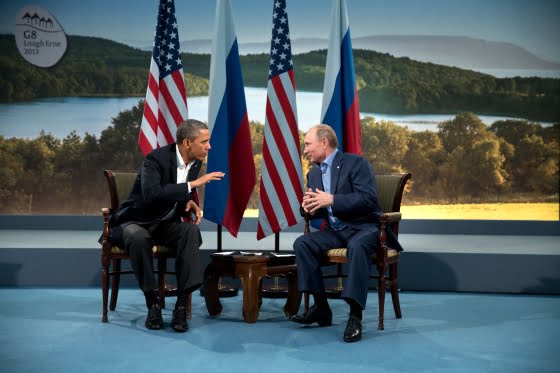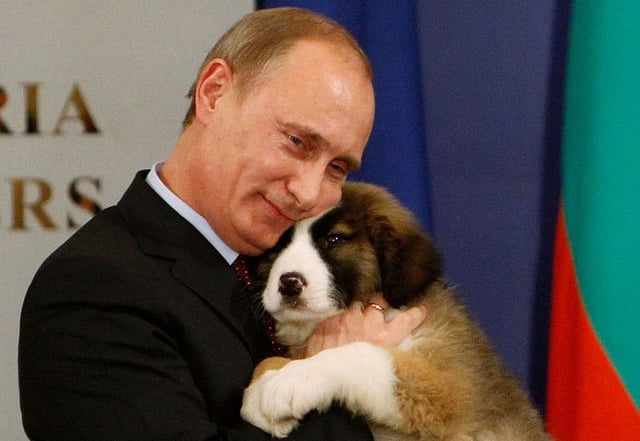If only we could read the minds of politicians, the world would be a much simpler place.. (or maybe a scarier one?). This may have been the idea behind Ben Gurion University researchers’ new computer-based personality profiling methodology that can decipher politician’s actual feelings, in context. NoCamels asked the research team to analyze speeches given by President Barak Obama and Russian President Vladimir Putin, two leaders who continually face off in the international arena, and the results were surprising to say the least.
Speech analysis is part of a study conducted by Prof. Yair Neuman and Prof. Golan Shahar, among others, in which the team developed a computerized algorithm that can automatically analyze any speech for noticeable personality traits. Given Obama’s “State of the Union” address and Putin’s speech on Crimea, the first thing that Neuman had to say about them is that these two leaders have at least one thing in common – they are suspicious of others.
 Are both Obama and Putin suspicious of their own governments?
Are both Obama and Putin suspicious of their own governments?
According to Neuman, Obama expresses tones of suspicion and mistrust in his State of the Union speech to the US Congress, as does Putin when he addresses the Federation Council in Russia on this past March’s crisis in Ukraine. But right off the bat, Neuman explains that the computer cannot address overall personality traits and rather identifies the ‘hidden elements’ of the text.
SEE ALSO: HA! Study Shows Comedy Shows Have Greater Political Influence Than The News
“What the algorithm does is check how similar an individual is to certain dimensions of personality. It isn’t able to examine the topics, instead looking at the unconscious dimensions of the speech outside the context,” Neuman explained to NoCamels.
The extent to which the team’s algorithm is able to identify what Neuman calls hidden “vectors of personality” became clear when he explained that the ever-confident Putin not only comes across as mistrustful in his speeches, but also a loner. Comparing the Crimea speech to a Security Council Speech on Russia’s territorial integrity, the algorithm pointed to Putin as a sad man with loner qualities looking for empathy. He added, “Putin has an aspect of romanticism: he is partly a macho man, part a caring manipulator, stating in his speech ‘We will take care of the people of Ukraine’. This really shows that, when it comes to politics, appearances tell you one thing and psychological nuances another.”
Sign up for our free weekly newsletter
SubscribeBlowing the whistle on Ed Snowden types
 Another interesting personality analysis that the algorithm uncovered was of the NSA whistleblower Edward Snowden. According to the computer’s findings, Snowden is secure and obsessive, more obvious traits that would suggest why he revealed the “ethically troubling” information he did, but also dangerously loyal. As Neuman puts it, “Snowden was considered in his workplace to be more ‘Popish than the Pope’, a person with extreme moral standards. This may be why he found it important to reveal to the world that the organization he worked for was extending beyond its ethical limits. This example really showed us that sometimes the most loyal employees and friends can be the most dangerous.”
Another interesting personality analysis that the algorithm uncovered was of the NSA whistleblower Edward Snowden. According to the computer’s findings, Snowden is secure and obsessive, more obvious traits that would suggest why he revealed the “ethically troubling” information he did, but also dangerously loyal. As Neuman puts it, “Snowden was considered in his workplace to be more ‘Popish than the Pope’, a person with extreme moral standards. This may be why he found it important to reveal to the world that the organization he worked for was extending beyond its ethical limits. This example really showed us that sometimes the most loyal employees and friends can be the most dangerous.”
SEE ALSO: New Facebook App Brings Iranians And Israelis Closer
When asked whether his and Shahar’s algorithm could one day affect political policy and even change the shape of international relations, Neuman answered in the negative. “We cannot tell what kind of actions people will take as a result of how they speak in public. We can only identify the hidden undertones of a certain text and try to point to patterns. From there, it may be easier to assess potential actions to be taken, but nothing is for sure.”
Photos: Jedimentat44/ Wikimedia/ Putin khulio!/ Edward_Snowden2
Related posts

Editors’ & Readers’ Choice: 10 Favorite NoCamels Articles

Forward Facing: What Does The Future Hold For Israeli High-Tech?

Impact Innovation: Israeli Startups That Could Shape Our Future




Facebook comments